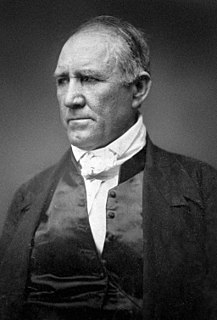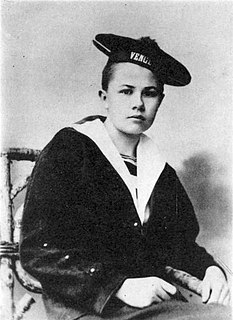A Quote by H. Rider Haggard
I have never observed that the religious are more eager to die than the rest of us poor mortals.
Related Quotes
All my life I have made it a rule never to permit a religious man or woman take for granted that his or her religious beliefs deserved more consideration than non-religious beliefs or anti-religious ones. I never agree with that foolish statement that I ought to respect the views of others when I believe them to be wrong.
We are poor, feeble, and blind mortals when the eye of the Almighty looks through all worlds and by his power executes all things aright, and by his grace, he makes us all rich in Heavenly Gifts. In distress and in bereavements, we can look only to him. From mortals like ourselves we can derive no help.
A week filled up with selfishness, and the Sabbath stuffed full of religious exercises, will make a good Pharisee, but a poor Christian. There are many persons who think Sunday is a sponge with which to wipe out the sins of the week. Now, God's altar stands from Sunday to Sunday, and the seventh day is no more for religion than any other. It is for rest. The whole seven are for religion, and one of them for rest.
The notion that a radical is one who hates his country is naïve and usually idiotic. He is, more likely, one who likes his country more than the rest of us, and is thus more disturbed than the rest of us when he sees it debauched. He is not a bad citizen turning to crime; he is a good citizen driven to despair.
What is that which can never die It is that faithful force that is born into us that one that is greater than us that calls new seed to the open and battered and barren places so that we can be resown. It is this force in its insistence in its loyalty to us in its love of us in its most often mysterious ways that is far greater far more majestic and far more ancient than any heretofore ever known.





































